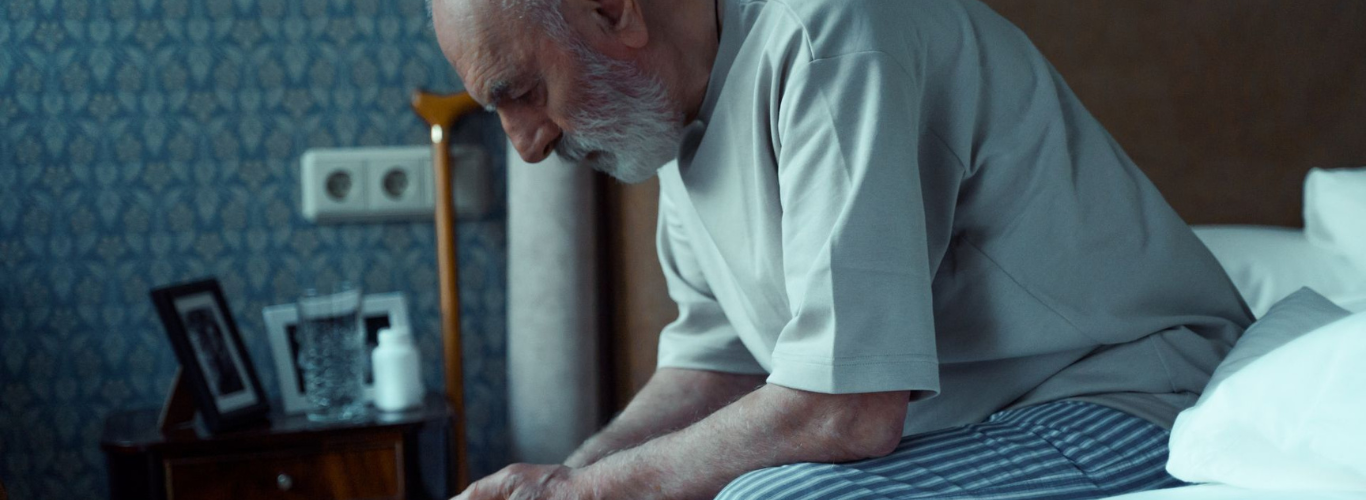Types of Nursing Home Abuse
Neglect in Nursing Homes: Know the Signs
Discussions about nursing home abuse often center on violence, but there’s an equally devastating threat lurking in plain sight: neglect. Research suggests about 44% of nursing home residents have experienced neglect, and over 90% have witnessed it. These shocking statistics reveal how widespread the problem truly is.
Neglect happens when caregivers fail to provide the essential care an elderly person needs to thrive. This can be intentional cruelty or stem from systemic problems. Unlike bruises, neglect often leaves subtle signs, making it crucial for loved ones to know what to look for. The Nursing Home Abuse Network wants to empower you to spot early warning signs, so you can protect your loved one before severe harm occurs.

Types of Nursing Home Abuse
Nursing Home Neglect: What to Watch For
When we think of neglect, the image of a severely malnourished or bedridden resident might come to mind. While those are extreme cases, neglect encompasses a much broader range of harmful behaviors and conditions. Understanding its different forms is the first step in recognizing problems early.
Physical Neglect
- Poor Hygiene: Unchanged clothes, unwashed hair, matted hair, body odor, untrimmed nails, or signs of infrequent bathing. Bedsores or pressure ulcers are a serious red flag.
- Malnutrition/Dehydration: Significant weight loss, sunken features, dry skin, complaints of constant thirst, or dark urine. Missed meals or inadequate portions are also concerning.
- Inadequate Medical Care: Unfilled prescriptions, allowed to remain in pain, worsening symptoms of existing conditions, or new, untreated health problems like infections.
Emotional Neglect
- Isolation & Loneliness: Being left alone for long periods with no activities or social interaction. Denial of visitors or attempts to participate in group events.
- Ignored or Dismissed: Repeated requests for help with basic tasks like toileting or eating going unanswered. Concerns about pain or discomfort being minimized by staff.
- Apathy from Caregivers: Staff showing boredom, disinterest, or even frustration when interacting with your loved one. Lack of basic warmth and respect.
Environmental Neglect
- Unsafe Conditions: Broken call buttons, hazards like slippery floors or loose cords, inadequate temperature control (too hot/cold), or malfunctioning equipment.
- Unsanitary Surroundings: Cluttered or dirty rooms, strong odors of urine or feces, soiled linens left unchanged, evidence of pests or insects.
Impact of Nursing Home Neglect
It’s easy to dismiss instances of neglect as mere carelessness or understaffing. But the truth is, neglect – whether intentional or not – seriously harms elderly residents’ physical and emotional well-being.

The Physical Consequences
Neglect isn’t just about hygiene and meals. It has a direct and damaging impact on a resident’s overall health and physical well-being. Understanding these consequences helps you recognize how neglect puts your loved one in danger, even if it starts subtly.
Deteriorating Health
Unmet hygiene needs lead to skin breakdown, infections, and discomfort. Malnutrition weakens the body, making recovery from any illness more difficult. Untreated medical problems worsen and can become life-threatening.
Increased Vulnerability
A neglected resident is at higher risk for falls, accidents within the facility, and developing serious complications from seemingly minor illnesses.
The Spiraling Effect
Neglect compounds existing problems. An unfilled prescription worsens diabetes, leading to more complications. Bedsores make someone less likely to move, leading to muscle wasting and further immobility.
The Emotional Toll
The damage neglect inflicts goes beyond the body. It erodes a person’s sense of self-worth, their connection to the world, and can even impact their mental health. Identifying these emotional signs is crucial to prevent lasting psychological harm.
Depression & Anxiety
Feeling ignored, uncared for, and like a burden leads to despair, loss of self-worth, and increased anxiety and fearfulness.
Withdrawal & Isolation
The neglected resident may withdraw from social interaction, further compounding their loneliness and decline.
Loss of Will
Severe neglect can erode a person’s will to live. They may stop communicating, refuse to eat, or become unresponsive as a defense mechanism against unbearable emotional pain.
Spotting Early Signs of Neglect in Nursing Homes
Neglect often starts with subtle changes that can be easily written off as normal aging or simple oversights. However, being vigilant about these seemingly minor signs gives you the opportunity to intervene before the situation worsens.

Challenging the "Just Old Age" Myth
Changes in Sleep Patterns: While sleep needs shift as we age, sudden unexplained difficulty sleeping, excessive daytime napping, or fear of being alone at night can signal pain, discomfort, or emotional distress.
Appetite & Eating Habits: Some loss of appetite is common, but drastic shifts, difficulty swallowing, refusing to eat, or signs of choking should be investigated.
Mood Swings & Withdrawal: Some moodiness can occur, but persistent sadness, apathy, loss of interest in once-enjoyed activities, or uncharacteristic anger are not normal aspects of aging.
Focus on Inconsistencies
Staff-Specific Issues: Does your loved one seem more fearful, soiled, or complain of pain after a particular staff member’s shift? Red flags should go up.
Day-to-Day Variations: Is care markedly better on specific days of the week? This might indicate staffing problems or neglectful patterns.
The Power of Your Intuition
Don’t Ignore That Feeling: If visits start leaving you with a nagging sense that something isn’t right, even if you can’t articulate it, pay attention. Loved ones are often the first to pick up on subtle cues of decline or distress.
Talk It Out: Discuss your concerns with other family members or trusted friends who have visited. They might validate your worries or provide other insights.

What to Do About Neglect in Nursing Homes
If you suspect neglect, you are not helpless. Taking action can both protect your loved one and help prevent the same thing from happening to other vulnerable residents. Here’s what you need to do:
Document Everything
Keep a Detailed Record: Write down dates, times, specific incidents, the staff involved, and your loved one’s condition before and after. Notes on conversations with management are also essential.
Take Photos (If Possible): If safe to do so, photos of unsanitary conditions, injuries like bedsores, or alarming changes in appearance can be powerful evidence.
Save Voicemails & Emails: Keep any communication with the facility as part of your documentation.
Advocate and Escalate
- Start With the Facility: Speak to the administrator or head nurse. Put your concerns in writing. Sadly, some facilities prioritize cover-ups over resident well-being.
- Never Stop Reporting: If the facility is unresponsive, don’t give up. Contact your state’s long-term care ombudsman, Adult Protective Services, or in severe cases (like untreated injuries) the police.
- Seek Legal Counsel: If the neglect has caused significant harm to your loved one, an experienced elder abuse attorney can help you fight for justice and compensation. Firms like Nursing Home Abuse Network understand the complex laws surrounding nursing home neglect and are strong advocates for the elderly.
Support, Connection, and Prevention
Neglect in nursing homes is a serious problem precisely because it’s often subtle and easy to dismiss. But the harm it causes is real, eroding both the physical and emotional health of our vulnerable elderly citizens.
By recognizing the signs of neglect, documenting your concerns, advocating relentlessly, and building a support network around your loved one, you can create change.
Be a Constant Presence
Frequent visits make neglect harder to hide. Let the staff know you are paying attention to your loved one’s care.
Combat Isolation
Help your loved one stay connected to family and friends. Encourage participation in any activities the facility offers (if safe to do so).
Remember, you are not powerless. Don’t let neglect win. The Nursing Home Abuse Network lawyers can help. Contact us today to discuss your concerns about your loved one’s care. We offer free consultations and are committed to securing justice for the elderly.
Get Your Free Case Evaluation
You don't have to fight this alone. We'll stand by your side every step of the way, providing both legal strength and compassionate support.
We'll call or email you back as soon as we get your response.